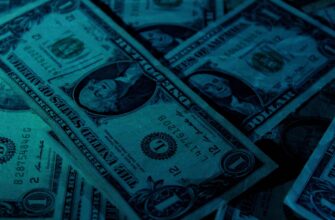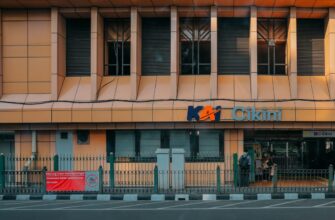- Your Complete Guide to Buying USDT via Bank Transfer in Abuja
- Why Buy USDT with Bank Transfer in Abuja?
- Step-by-Step: How to Buy USDT via Bank Transfer in Abuja
- Top 3 Abuja-Friendly Platforms for USDT Bank Transfers
- Critical Safety Tips for Abuja Buyers
- FAQs: Buying USDT with Bank Transfer in Abuja
- Is buying USDT via bank transfer legal in Abuja?
- How long do bank transfer payments take?
- What’s the minimum investment?
- Can I reverse a transaction if scammed?
- Are there alternatives to bank transfers?
- Do I pay taxes on USDT purchases?
Your Complete Guide to Buying USDT via Bank Transfer in Abuja
Looking for a secure way to convert your Naira to USDT in Abuja? Buying Tether (USDT) with bank transfers offers stability and accessibility for crypto investors in Nigeria’s capital. This 900-word guide walks you through every step – from choosing trusted platforms to avoiding scams – ensuring you can safely convert fiat currency to cryptocurrency using Abuja’s banking infrastructure. Whether you’re hedging against inflation or entering DeFi, this method bridges traditional finance and crypto efficiently.
Why Buy USDT with Bank Transfer in Abuja?
Abuja residents increasingly use USDT for:
- Naira volatility protection: Hedge against currency fluctuations
- Low-cost remittances: Send cross-border payments with minimal fees
- Crypto trading entry: Foundation for buying Bitcoin, Ethereum, etc.
- Business transactions: Settle invoices with global partners
Bank transfers avoid risky cash meetings and provide transaction records – crucial for accountability in Nigeria’s regulated financial landscape.
Step-by-Step: How to Buy USDT via Bank Transfer in Abuja
- Choose a Licensed Platform: Sign up on CBN-licensed exchanges like Binance, Quidax, or Luno. Verify your identity with BVN and photo ID.
- Fund Your Naira Wallet: Initiate a bank transfer from your Abuja bank account (GTB, Zenith, UBA, etc.) to the exchange’s designated Nigerian bank account.
- Convert to USDT: Once funds reflect (usually within 1-24 hours), navigate to the P2P/Buy Crypto section. Select “USDT” and “Bank Transfer” as payment method.
- Lock Exchange Rate: Review seller offers – prioritize verified merchants with 95%+ ratings. Confirm rate and transaction limits before locking.
- Complete Payment & Receive USDT: Transfer Naira to the seller’s account via your bank app. Upload proof of payment. USDT releases to your wallet upon seller confirmation.
Top 3 Abuja-Friendly Platforms for USDT Bank Transfers
- Binance P2P:
- 500+ Nigerian sellers
- 0% trading fees
- Escrow protection
- Quidax:
- CBN-registered
- Instant Naira deposits
- NGN/USDT pair direct purchase
- Bybit:
- Low minimums (~₦5,000)
- 24/7 customer support
- Multi-bank deposit options
Critical Safety Tips for Abuja Buyers
- ❌ Never transfer before locking rates in-app
- ✅ Use platforms with escrow services
- 🔒 Enable 2FA on exchange and bank accounts
- 📞 Verify seller account numbers via platform chat
- ⚠️ Avoid “too-good-to-be-true” rates (current avg: ₦1,480/USDT)
Note: The SEC/CBN prohibits Nigerian banks from directly facilitating crypto transactions. P2P platforms remain legal for individual use.
FAQs: Buying USDT with Bank Transfer in Abuja
Is buying USDT via bank transfer legal in Abuja?
Yes. While Nigerian banks can’t process crypto transactions directly, CBN guidelines permit P2P trading. Use SEC-recognized platforms like Binance or Quidax for compliance.
How long do bank transfer payments take?
Naira deposits typically reflect within 1-24 hours. Delays may occur with international platforms during weekends. Always confirm processing times before transferring.
What’s the minimum investment?
Most platforms allow purchases from ₦5,000-₦10,000. Limits vary by seller – filter P2P listings by your desired amount.
Can I reverse a transaction if scammed?
Bank transfers are irreversible. Dispute scams immediately via the platform’s support. Escrow protection (where platforms hold USDT until payment confirmation) prevents most fraud.
Are there alternatives to bank transfers?
Yes. Abuja users can buy USDT via debit cards, cash deposits, or gift cards – though bank transfers offer the lowest fees (0.1-1% vs. 3-5% for cards).
Do I pay taxes on USDT purchases?
Nigeria’s 10% capital gains tax applies when selling crypto for profit. Document all transactions for FIRS compliance.
Disclaimer: Cryptocurrency investments carry risks. This guide doesn’t constitute financial advice. Verify platform legitimacy independently and never invest more than you can afford to lose. Rates and regulations may change.








